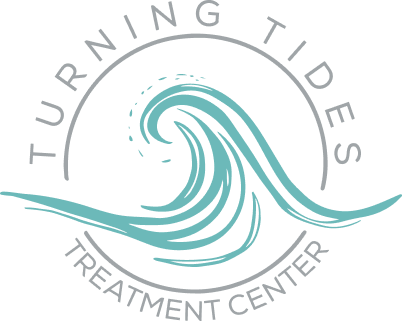Inpatient Rehab
in Orange County
According to the U.S. Department of Health and Human Services, 10 percent of adults, or around 23 million people, struggle with substance abuse at one point in their life. Alcohol is the most commonly abused substance, but there are quite a few more illegal substances that are also frequently abused.
Most people who struggle with substance abuse disorder or drug addiction require inpatient rehab to start the recovery process. With inpatient rehab in Irvine, the person struggling with substance abuse can go through detox with medical professionals on hand and begin recovery without the pressure of their daily life and routine.
This guide highlights the basics of inpatient drug and alcohol rehab and defines the expectations of residential treatment centers in Orange County, CA.
What is an Inpatient Rehab?
An inpatient addiction treatment program is almost always the first step in a person’s journey to a sober lifestyle and recovery when struggling with substance abuse. During this time, the person lives in the treatment center and doesn’t leave for any reason.
In the first few days to a week, the person struggling with substance abuse is going through detox/detoxification as they stop using their drug of choice. This detox can come with withdrawal symptoms. Some symptoms are serious, and the person needs to be monitored by medical professionals to ensure their safety.
Many patients aren’t allowed to make or receive phone calls during the first part of their stay or see visitors. While this might seem harsh or restrictive, the goal is to help the person by relieving the everyday stress in their life and concentrating on their recovery.
Most inpatient rehab programs last for around 30 days. As the patient progresses in their recovery, they can make calls and visit with friends and family. Some patients will stay longer to ensure that they have built the emotional tools they need to remain sober once they return home.
What Substance Abuse Disorder Conditions Require Inpatient Rehab?
Some substance abuse disorders result in dangerous withdrawal symptoms, where the person needs to be in an inpatient rehab setting and under the supervision of medical staff for their safety. However, every person who struggles with addiction needs inpatient rehab in the beginning, including:
- Methamphetamine
- Opioids
- Hallucinogens
- Inhalants
- Ketamine
- Co-occurring disorders/ Dual diagnosis
Some people might claim that they can stop using their drug of choice or drinking anytime, but this isn’t usually the case. Inpatient rehab at an addiction treatment center provides the patient with the emotional and physical support needed to detox in a caring and compassionate environment.
After detox, the patient finds a therapeutic environment where they can take the next steps in their process free from the daily demands and stress at home. These initial weeks help the person struggling with substance abuse disorder start to develop the ability to face and overcome their addiction.
What Are the Signs That a Person Needs Inpatient Rehab?
Some people struggling with substance abuse disorder believe that they have their usage under control, but often, this isn’t true. A loved one might wonder if their friend or family needs to go to a residential treatment facility in Orange County, CA.
While the signs that a person needs inpatient rehab depend on the substance the person abuse, there are some symptoms that a loved one might notice, such as:
- Inability to stop using the substance on their own
- Lying or stealing to cover their usage
- Legal troubles due to substance abuse
- Accidental or intentional overdose
- Refusing to take part in family events
- Showing little interest in things they once enjoyed
- Visiting multiple doctors or hospitals for prescriptions
- Problems with remaining employed or keeping up with schoolwork
Of course, there might be physical and emotional changes depending on the substance. If someone suspects someone they love is struggling with substance abuse disorder, they probably have a good idea of the substance and can easily find signs of physical changes for that particular substance.

Benefits of Residential Treatment Services in Orange County
Before undertaking the time commitment and attempting to detox, a person struggling with substance abuse disorder wants to know the real benefits of choosing a residential treatment center in southern California. Here are some things to consider:
- Medical supervision during detox to ensure the patient's safety and well-being
- Removed from the daily stress and triggers that complicate substance abuse
- Intense therapy to build new coping skills and self-confidence
- A place to begin recovery without judgment
- Positive reinforcement and encouragement
- A quiet place to heal and recover
Most people who struggle with substance abuse need time at an inpatient alcohol and drug rehab center to succeed.
What to Expect During an Inpatient Treatment Program in Irvine, California
Taking that first step and joining an inpatient treatment program can be scary, but knowing what to expect can make it a little easier. The first step is almost always going to be detox which can take between three days and a week.
Once the bulk of the withdrawal symptoms and cravings subside, the patient will work with their therapist to choose the best substance abuse treatment plan for that person. It might include:
This might be a combination of therapies and require little trial and error. Honesty between the patient and therapist is key.
Find Help for Substance Abuse with Turning Tides
When someone struggles with substance abuse and is ready to take the first steps on their recovery journey, they need to choose a residential treatment center in Orange County, CA, that best meets their needs. The right inpatient rehab in Irvine can make the difference between a successful recovery and the continuation of the struggle.
At Turning Tides Treatment Center, people struggling with substance abuse find an inpatient treatment center that can provide them with the space, treatment options, and tools they need to recover from substance use disorders and avoid future relapses. Our rehab facility’s staff offers a variety of therapy options to varying patient needs.
Contact us today to learn more about our recovery program and how we can help.

Clinically Reviewed by:

Matthew is a licensed marriage and family therapist and clinical supervisor in Orange County, California. Matthew has an extensive history working with the substance abuse and mental health population and is committed to client care with an ethical approach to treatment. Matthew utilizes a solution-focused, cognitive behavioral approach to therapy. He emphasizes the importance of creating a recovery environment which supports deep and meaningful sober connection, a system of accountability, daily structure and healthy routine, and an aftercare plan which will support continued sobriety post-treatment.
